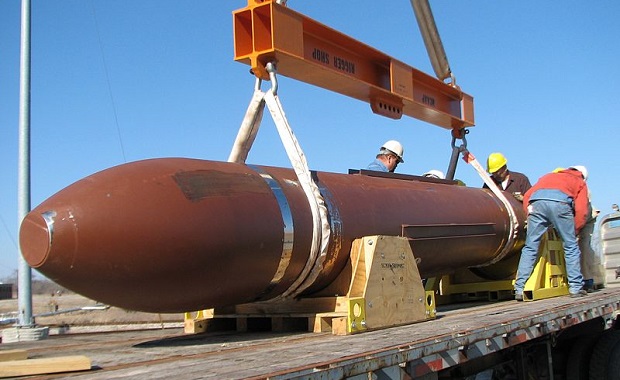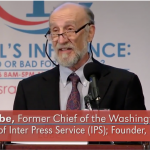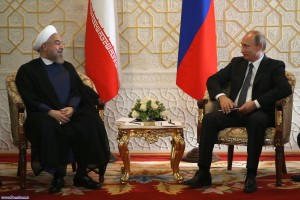by Jim Lobe
*Editor’s Note: Read an accompanying post to this article here.
A number of readers have complained that I buried the important news in my last post marking Mikulski’s announcement Wednesday. So I’m reposting below that part of the Mikulski piece that dealt with what appears to be AIPAC’s and the opposition’s most likely “Plan B” for congressional action, aimed chiefly at those Democrats who feel queasy about their decision to support the White House and vote against the pending resolution to reject the JCPOA.
A summary of a draft bill, which I obtained from a source who asked to remain anonymous, is circulating that is designed (almost certainly by AIPAC) to appeal to those Democrats eager to “kiss and make up” after their defiance of the most powerful Israel lobby group (whose reputation for omnipotence just took a very heavy hit) and its donors. Although most of the bill appears to be innocuous and consistent with the administration’s own intentions, it also contains a number of “poison pills,” which, if approved, appear calculated to raise new obstacles to implementation and Tehran’s confidence that the U.S. will fully comply with both the spirit and the letter of the JCPOA.
With proposed banking sanctions, for example, it appears to do what Kagan and the policy director of the neoconservative Foreign Policy Initiative (FPI), Juan Zarate, have urged with respect to codifying existing non-nuclear sanctions and reducing or eliminating the president’s waiver authority. It also would set up a process for “expedited procedures” for Congress to pass new terrorism sanctions against Iran under certain circumstances, and also create a coordinator for compliance whose responsibilities would not only be to oversee Iran’s implementation of the JCPOA but also report on non-nuclear issues outside the scope of the agreement.
Yet another provision would authorize the delivery to Israel of Washington’s most powerful Massive Ordinance Penetration munitions (MOPs) and the means to deliver them against Iran’s nuclear facilities, a move that administration officials have long said they strongly oppose. This would be one part of a much- enhanced package of military assistance for Israel.
Other provisions appear designed to “renegotiate” certain provisions of the JCPOA; for example, by eliminating the exemption of any contracts agreed to between Iran and foreign companies during the implementation phase in the event that sanctions are “snapped back.” It also requires Iran to abide by the Nuclear Non-Proliferation Treaty’s (NPT) Additional Protocol as of “adoption day,” even if the Iranian parliament has not yet ratified the Protocol.
We hear that the sponsors intend to push this through Congress as a companion to the disapproval resolution. The idea is to enable nervous Democrats to demonstrate their strong support for Israel and their undiluted distrust and hostility toward Iran. The fear is that if this measure isn’t passed now, then it could prove much more difficult to pass once Iran begins to implement the agreement.
Here is a summary of the draft bill which, as I understand it, is still very much a work in progress.
The Iran Policy Oversight Act of 2015
Building on the bipartisan commitment to oversight outlined in the Iran Nuclear Agreement Review Act of 2015 – PL 114-17
Sets the U.S.’s going-forward Iran policy regarding the nuclear issue: The United States will never permit Iran to obtain a nuclear weapon, and all options available to the United States, including the military option, remain available.
Clarifies key interpretive issues in the JCPOA, which would also apply to subsequent agreements, including:
No sanctions relief will be provided to Iran until it meets its commitments related to resolution of PMD [possible military dimensions] issues.
Any production of HEU by Iran would be a violation of the JCPOA.
Nothing in the JCPOA limits or curtails Congress’ ability to pass sanctions legislation addressed to legitimate foreign policy purposes, including sanctions related to terrorism, human rights, and Iran’s ballistic missile activities.
There is no “grandfather clause” that would shield ongoing sanctionable activities by foreign firms in the event of a snap-back of Iran sanctions.
The JCPOA commits Iran to abide by all the provisions of the Additional Protocol of the NPT as of “adoption day,” regardless of whether the Iranian parliament approves the Additional Protocol.
Requires the Administration to submit:
A ten-year regional strategy for Countering Conventional and Asymmetric Iranian Activity and Threats in the Middle East and North Africa within six months, and every two years thereafter,
Report[s] detailing Iran’s use of funds received through sanctions relief and changes in funding for regional activities and support for terrorism,
Reports detailing Iran’s R&D activities as well as estimated nuclear weapons capability breakout time, and
A report addressing the IAEA’s resolution of the PMD issue.
Explicitly authorizes additional, specific security assistance to Israel, including bunker-busting MOPs, to ensure the President can and should take all necessary and appropriate measures to ensure Israel has the means and capacity to defend itself against nuclear and other threats from Iran.
Continues in effect banking sanctions addressed to ballistic missile proliferation and terrorism sanctions, unless the President certifies that designated financial institutions have ceased their support for missile proliferation and terrorism. Also continues in effect sanctions related to human rights abuses.
Requires the President to seek multilateral arrangements to both maintain control of exports related to conventional arms and ballistic missiles to Iran, and ensure an effective snap-back policy to respond to any non-compliance incidents as well as breach of the JCPOA by Iran.
Puts into place expedited procedures for consideration of new terrorism sanctions against Iran if Iran:
1) directs or conducts an act of terrorism against the U.S., or
2) substantially increases its operational or financial support for a terrorist organization that threatens U.S. interests or allies.
Requires the President to appoint a Coordinator for Compliance within the Department of State to:
1) coordinate all activities related to implementation of the JCPOA and any subsequent related agreements, and
2) monitor human rights abuses and activities relating to support for acts of international terrorism by the government of Iran.






Yup. Congressmen’s favorite “I was against it before I was for it” game. My Senator Klobuchar often votes against cloture to “move the process forward,” then votes against the measure itself when it is sure to pass with 57 votes so she can claim she was opposed whilst having cleared the way for passage. My bet is she will vote for this odious bill and to provide MOPs to Israel so it can attack Iran, precipitating a regional war and a real Iranian nuclear weapons program, which has not existed until now.
Typical of just about all US news sites in.you just dont get it do you? It’s over. P5+1 signed this deal so it doesnt matter a damn whether or not the narcisstic militarist Exceptionalist weirdos aka the US Congress and Senate ratify the deal, the rest of the world that is all those of us who arent the tiny population of yanks/Israelis and their mates the Saudis/Gulf theocracies have ratified it. Our businessmen and diplomats are flooding Teharn right now. All a rejection by your nimpties will do is destroy what little remains of your credibility as a civilised nation, whose word can be trusted…then you’ll be ignored. Then your business sector will scream blue murder and pour bribes (ie campaign contributions) into your pollies so they can rejoin the civilised world and do business with Tehran
For American people to free themselves from this organization, they need to demand it to be illegal and therefore needs to be banned from all its social political activities.
Another reason why the Iran Nuclear Deal is a good thing for the World.
The Iran Nuclear deal with the P5+1 powers is a good thing for the World for many reasons which have been discussed in the press in great detail. It will hopefully reduce the danger of use of nuclear weapons etc.
However, an aspect that has not been discussed before, at least publicly, is that it will prevent the use of these Weapons by Israel in a PRE+EMPTIVE STRIKE against IRAN in the very near future. Preposterous?? Let us examine this a little.
The Israelis have said openly that they will do everything in their power to stop Iran from getting a nuclear weapon since they view the acquisition of such weapons by Iran as an existentialist threat. Whether it is so or not is another matter, but this is the stated Israeli position.
The Israeli position has been interpreted to mean that Israel will launch a targeted attack on the Iranian nuclear facilities, like it did against the Iraqi Nuclear Reactor in the eighties and more recently on a Syrian nuclear facility a few years ago.
The main criticism against this strategy is that according to detailed analysis by the US military and Intelligence agencies such an attack will not guarantee the complete destruction of the Iranian nuclear facilities or a reduction in the will of Iran to acquire such facilities. A post conflict Iran could be even more determined to acquire these facilities as was the case with Pakistan after the 1971 split up of Pakistan into two parts with the help of India.
Therefore if we take the Israeli Government at its word and couple this with the US analysis , then its stated position implies that Israel will use non-conventional weapons to ensure that Iran does not get a nuclear capability. This in turn means that it would launch a pre-emptive NUCLEAR STRIKE against Iran’s main facilities and a few other centers so as to not only completely destroy the Nuclear infra structure but more importantly also the will of the Iranian people to pursue with such a course.
Let us examine the factors that will inhibit the Israelis from taking such an action. First there is the moral factor which is really of little value when it comes to War. Second there is the factor of world opinion and the consequences of such an action.
Doubtlessly there will be a huge outcry from all across the World against this action. But little else!
Can we imagine that the USA and or any of the Western powers would launch an attack against Israel for taking such an action. NO. On the contrary many circles in these countries will start saying that the Mullahs asked for it and that the Israel had every right to defend itself. (even though this threat may just be imagined). Will the Russians and the Chinese take any action. I doubt it. The Arab nations will likely say good riddance – one Shi’ite state less!
So In view of almost no consequences for Israel after the use of Nuclear weapons for such a preemptive strike against Iran would be very manageable ( by Israel ).
However, after such a strike and the negligible consequences against Israel for using nuclear weapons the danger for the similar use of these weapons will rise manifold. This will be disastrous for the World.
However if the deal does take place and Iran’s stock pile of nuclear fuel and facilities are largely dismantled as the deal provides and the remainder come under intense inspections, then the danger for such a Pre-emptive strike will reduce.
So I would think that it is in every body’s interest that this deal does go through.
In addition it is also necessary that the World discusses openly under the UN perhaps, the consequences of the first use of Nuclear Weapons by any state prior to its actual use.